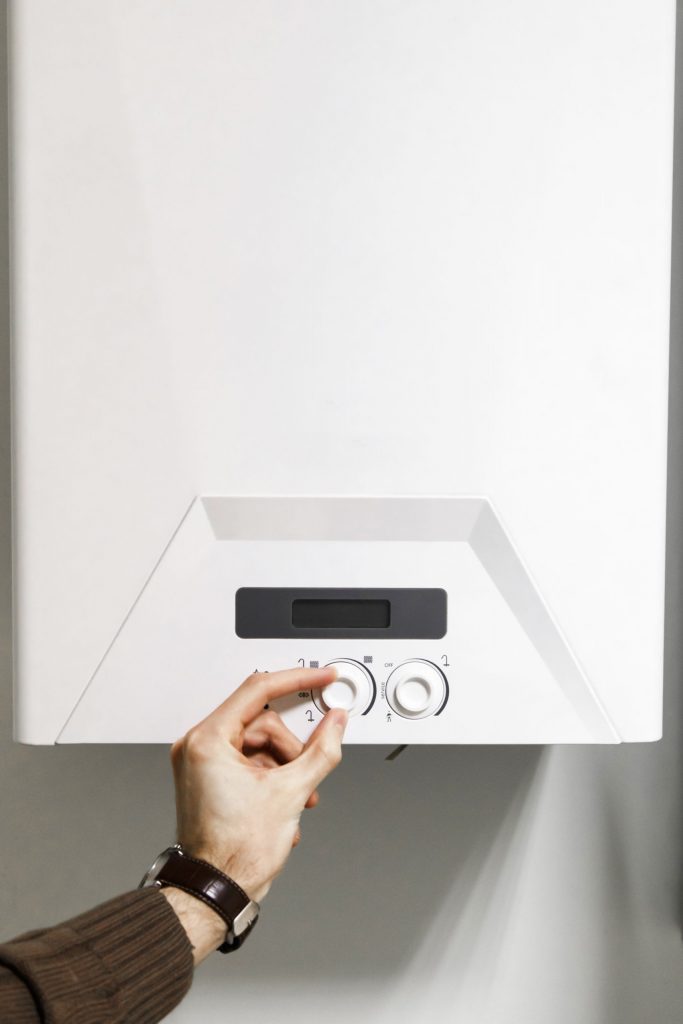A boiler is an efficient way to heat your home, as it works quickly and keeps your home warm without using too much energy. However, a boiler won’t last forever, and eventually, you’ll need to replace it.
When it is finally time to replace your home’s boiler heating system, you may be wondering how to go about this process. Below, we’ll cover some reasons why you may need to replace your boiler and essential tips to help you buy a new boiler in Las Vegas, NV.
Why should you replace a boiler?

Most boilers have a life span of roughly 10 to 15 years. However, some boilers may begin losing efficiency after only eight years. You’ll notice that as the efficiency drops, your utility bill will rise. Aside from its efficiency, as boilers age, they’ll begin to experience more problems. If you’re constantly calling to have your boiler repaired, then these repair bills will start emptying your wallet.
A leaking boiler is another possible reason for replacement. If your boiler starts leaking water, it may signify that the valve or seal is broken. Not to mention, a faulty valve or seal is an expensive repair job. A leaking boiler is also dangerous, so you may want to start shopping around for a new boiler.
In cases like these, it’s more cost-efficient to buy a new boiler and replace the old one. It’s also a smart idea to replace your boiler if you plan on selling your home. Replacing an older boiler heating system with a modern one will increase your home’s value and make it more attractive to potential buyers.
Familiarize yourself with the difference between condensing and noncondensing boilers.
There are two primary types of boilers: condensing and noncondensing boilers. Noncondensing boilers are the most common and vent out combustion gases during the heating process, reducing the system’s efficiency. Newer boilers are condensing. Condensing boilers’ exhaust gas is recycled to preheat cold water as it fills the unit. Condensing boilers are much more energy-efficient. However, they’re also usually more expensive.
Buy the right-size boiler for your climate.

When shopping for a new boiler, bigger isn’t always better. If you purchase a new boiler that’s too large, you’ll be wasting energy and throwing your money away. It’s crucial to buy the right boiler for your climate. Here in Las Vegas, NV, we don’t deal with the extremely low temperatures that more northern states do. As a result, we only need boilers in the range of 20 British thermal units (BTUs) to keep our homes warm.
Don’t forget to consider where the boiler will vent.
When you have a new boiler installed in your home, don’t forget it’ll need to be vented to the outside. Sometimes, this can be done using your home’s chimney, which doesn’t require much space. However, a boiler vented by forced air instead needs open space around the unit to pull in air for proper venting. So, when you’re shopping for a new boiler, consider the location and venting style, too.
Check your potential boiler’s energy-efficiency rating.
All new boilers come with an Energy Star rating label that explains how energy-efficient that particular unit is. Newer boiler systems trap the escaping heat and redirect it through the heating system instead of losing it like older models. As a result, a modern boiler will have a higher efficiency rating and an annual fuel utilization efficiency (AFUE) number ranging from 90 to 95 percent. On the other hand, boilers more than 10 years old usually fall under 70 percent.
Make a decision you can stick with when you purchase a new boiler.
You should never rush the decision when shopping for a new boiler. Instead, use the available information about your potential choices and the tips we’ve provided to make an educated decision. Most importantly, make a purchase that you’ll be happy with for roughly 15 years.



